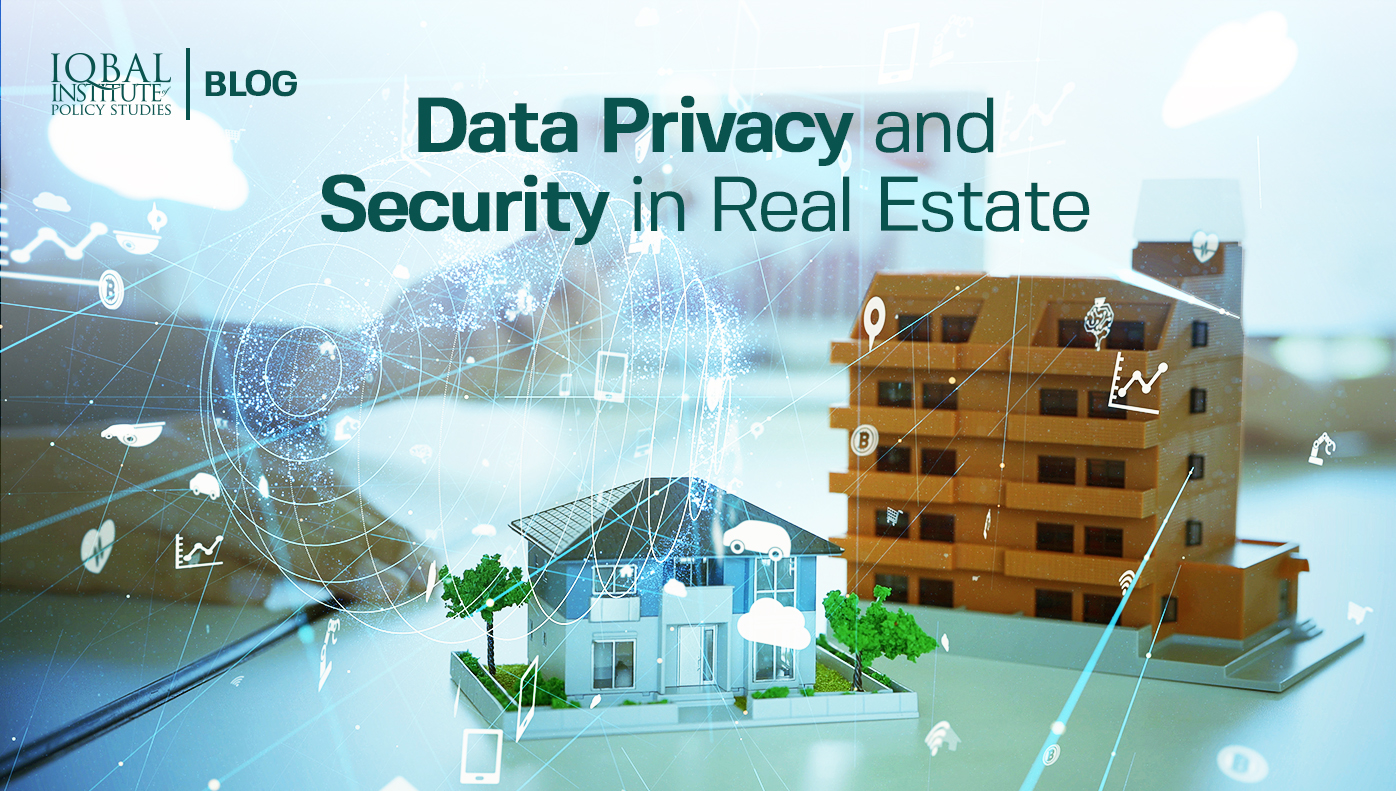
Introduction
As technology increases the amount of data collected on individuals, it becomes essential that data privacy and security are given due importance. Many people do not realise the amount of personal data they share on the internet. Credit card information, addresses, work office travel routines, places visited, and much more is being shared with websites and online platforms. It becomes frightening to think about what could happen if this data falls into the wrong hands. Leaking out of sensitive information can bring harm in multiple ways.
From identity theft to revealing financial details, multiple frauds can happen on an individual’s name without them realising it. The real estate sector is already the least transparent with most cases in Pakistani courts being related to land title disputes. As people in Pakistan are not particular about the safety of sensitive information, issues like these crop up on a daily basis. Therefore, it is vital to understand how data privacy and security are linked to real estate.
Understanding Data Privacy and Security
Data privacy is a branch of information security that deals with the proper handling of data. It is generally accepted that organisations cannot collect data on an individual without their consent. Even when the data is collected, it is done under strict regulations and safety checks to ensure that sensitive information is not breached by hackers (Petters, 2021). Data is the most important asset of a company in the information age. As the concept of data economy picks pace, organisations find immense value in collecting, sharing, and using data. Companies like Google, Facebook, and Amazon are prime examples of how data can enable organisations to grow at exponential rates.
Transparency in how an organisation collects, shares, and uses data is vital to building trust and accountability with users. It must be ensured that people are free from uninvited surveillance. Having the ability to safely express one’s opinion is critical to living in a democracy. Most people think that if their organisation is protecting their information from hackers, then they are automatically compliant with data privacy and security legislation. But that is a distinct feature of data security, while data privacy is related to how the data is utilised by the organisation. Therefore, data privacy has a strong link with legislation, policies, and best practices (SNIA, 2021).

Data Privacy in Real Estate
Trust is at the heart of the real estate business. That means that how real estate professionals collect, use and share data is vital to their success. Data security in real estate would mean that businesses must take actionable steps to protect the security, confidentiality, and integrity of data. Real estate transactions require many details on behalf of an individual and can also include sensitive details about a client and their background. Besides this personal information, real estate apps also collect large amounts of data related to the personal preferences of individual clients, their interests, and investment data. If data is leaked from real estate firms, it can easily lead to identity theft and fraud.
Say someone was interested in buying a house in some famous locality. Fraudulent sellers can use that information to manipulate such a person into buying scam deals. Identity theft is another major issue as personal detail of individuals often gets leaked and is sold on the black market. When people apply for home loans, they find out that multiple loans have already been taken out on their names and they cannot go further with their application. Therefore, real estate agencies, agents, and brokers must ensure that they inform their clients and app users of their data security policy. That must be followed by concrete steps towards ensuring that data is always kept protected and its usage is properly regulated under any legislation enacted by a country. (NAR, 2021)

Data Privacy and Security in Pakistan
As more people get acquainted with the use of social media and other software services, concerns about data privacy and security are increasing with time. On a governmental level, concepts like fifth-generation warfare are prompting countries to take steps towards safeguarding their citizen data. Most of the developed world now requires that software databases be established in their homeland and not on servers outside their domain. Pakistan too has recently taken steps toward ensuring that data on its individuals stays safe and within the country. But companies that operate in or are based in Pakistan must also abide by certain regulations for collecting, using, and storing data. Unfortunately, Pakistan does not have any specific law for that purpose. But individual laws, such as the Prevention of Electronic Crimes Act 2016, contain significant provisions for data protection. Article 14 of Pakistan’s constitution provides for the dignity of a person and privacy of the home as fundamental rights, both of which can be violated if personal and sensitive data is not protected (Group, G.).
The incumbent government of Pakistan introduced the Personal Data Protection Bill 2020 for consultation among lawmakers. The bill provides provisions for holding data-processing companies accountable for protecting the personal data of consumers. The requirement of getting citizen consent before collecting their data is also present in the bill, which is an essential step for companies to make their users aware of what data companies will collect on their profiles. Similarly, the bill also regulates the disclosure of financial data for other services, standards for security and protection of data, and time limits on data retention. Rights of a data subject such as the right to correction, erasure, withdrawal of consent, the extent of disclosure, and the right to prevent the processing of data are also mentioned in the comprehensive bill (Khilji, U.).

Conclusion
Rising awareness among the masses and the government has prompted Pakistani lawmakers to ensure that data security and protection is taken care of at the state level. The real estate sector has always remained a data-hungry sector. With so much data being collected on individuals, it becomes necessary that its privacy, collection, usage, and storage are taken care of. It is also important that the user is made aware of all the data that is being collected from him, how it will be used, and for how long will it be kept with the organisation.
Bibliography
NAR. (2021). Data Privacy and Security. Retrieved from National Association of Realtors: https://www.nar.realtor/data-privacy-security#section-166049
Petters, J. (2021). Data Privacy Guide: Definitions, Explanations and Legislation. Retrieved from https://www.varonis.com/blog/data-privacy/
SNIA. (2021). What is Data Privacy? Retrieved from Storage Networking Industry Association: https://www.snia.org/education/what-is-data-privacy
Khilji, U. (2020). Data protection bill. Retrieved 24 May 2021, from https://www.dawn.com/news/1555944
Group, G. (2021). Data Protection 2020 | Laws and Regulations | Pakistan | ICLG. Retrieved 24 May 2021, from https://iclg.com/practice-areas/data-protection-laws-and-regulations/pakistan
Research Questions
1. What is data privacy?
2. Why is Data Privacy important in Real Estate?
3. Does Pakistan ensure data privacy for its citizens?
[/fancy_box][fancy_box box_style=”color_box_basic” icon_family=”fontawesome” image_url=”7085″ box_color_opacity=”1″ box_alignment=”left” border_radius=”default” image_loading=”default” icon_fontawesome=”fa fa-envelope-open” icon_size=”60″]
Key Takeaways
1. As technology increases the amount of data collected on individuals, it becomes essential that data privacy and security are given due importance.
2. Many people do not realise the amount of personal data they share on the internet.
3. From identity theft to revealing financial details, multiple frauds can happen on an individual’s name without them realising.
4. The real estate sector is already the least transparent with most cases in Pakistani courts being related to land title disputes.
5. Data security in real estate would mean that businesses must take actionable steps to protect the security, confidentiality, and integrity of data.
[/fancy_box]

Leave a Reply